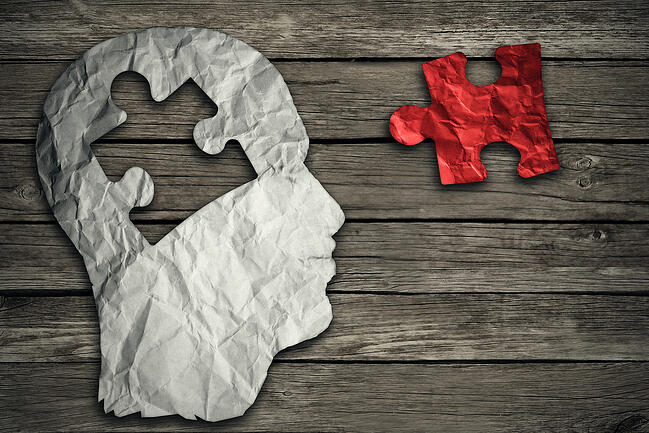
Our lives depend on sleep, and not getting enough might have adverse effects. It is well-recognized that a lack of sleep can bring on physical health issues like obesity, heart disease, and diabetes.
However, the effects of lack of sleep on mental function are equally significant and should not be ignored. This article will examine how sleep deprivation can impact mental function and what measures can be taken to lessen its negative consequences.
The Impact of Sleep Deprivation on Mental Activity
Our brains require sleep to function correctly. Our brains consolidate memories as we sleep, transferring them from short-term to long-term memory storage. We can protect our capacity to retain and absorb new knowledge by getting enough sleep, which is crucial for learning.
One of the most significant effects of sleep deprivation on mental activity is impaired cognitive function. Sleep-deprived individuals may experience difficulty with attention, concentration, and decision-making. They may also have slower reaction times and reduced mental agility. These effects can harm activities that demand prolonged focus, such as driving, which can lead to accidents.
The Influence of Sleep on Memory and Mood
Sleep deprivation can also harm mood and emotions. Research has demonstrated that people who suffer from sleep deprivation are more susceptible to experiencing indications of anxiety and depression. They may also have more difficulty regulating their emotions, leading to heightened sensitivity, irritability, and mood swings.
Another significant effect of sleep deprivation on mental activity is memory impairment. During the period of passing tests and a heavy workload, it is challenging to cope with the volume of work for a student. In this case, you can take everything you need from https://speedypaper.com. Use the time to get some sleep and recover. Lack of sleep can make retaining and recalling information challenging, affecting our ability to learn and perform academically or professionally. In extreme cases, chronic sleep deprivation can lead to memory loss and other cognitive deficits, including dementia and Alzheimer’s disease.
Impaired Decision-Making and Reduced Creativity
Studies have shown that sleep-deprived individuals may have impaired judgment and decision-making abilities. It can be hazardous in situations that require quick and accurate decision-making, such as driving or operating heavy machinery.
Lack of sleep can also negatively impact creativity. Research has shown that sleep-deprived individuals may have reduced creative thinking and problem-solving abilities.
The Importance of Quality Sleep
It’s not just the quantity of sleep but also the quality. Poor sleep quality, characterized by frequent awakenings and disruptions, can be as detrimental to mental activity as sleep deprivation. Some studies suggest poor sleep quality may be more closely linked to cognitive impairment than sleep duration.
Quality sleep is essential for the brain’s restoration and rejuvenation, enabling it to perform optimally during waking hours. Good sleep practices are crucial to ensuring proper rest, including adhering to a regular sleep routine and refraining from consuming caffeine and alcohol before sleeping.
Physical Symptoms
Sleep deprivation can not only result in mental symptoms but also physical symptoms such as muscle weakness, fatigue, and headaches.
These physical symptoms can further impact mental activity by causing discomfort and reducing the ability to concentrate.
How to Improve Sleep Quality
Improving sleep quality can help mitigate the adverse effects of sleep deprivation on mental activity. Here are some tips for promoting healthy sleep habits:
- Establish a regular sleep schedule: Maintaining a consistent sleep schedule is essential by going to bed and waking up at the same time every day, including on weekends.
- Create a sleep-conducive environment: Make sure your bedroom is quiet, dark, and calm, and use comfortable bedding and pillows.
- Avoid stimulants: Avoid caffeine and alcohol before bedtime, as they can interfere with sleep.
- Relax before bed: Engage in relaxing activities before bedtime, such as reading, taking a bath, or practicing meditation.
- Limit screen time: Avoid using electronic devices, such as smartphones and computers, before bedtime, as blue light can interfere with sleep.
- Exercise regularly: Regular exercise can improve sleep quality and duration, but avoid exercising close to bedtime.
Seek Professional Help
If you are experiencing chronic sleep problems or have a sleep disorder, seeking professional help is essential. Consulting with a sleep specialist is highly recommended to diagnose and manage sleep disorders such as insomnia. They may recommend lifestyle changes, such as diet and exercise modifications, or prescribe medication or other therapies to improve sleep quality.
Conclusion
Sleep is essential for our physical and mental health, and the adverse effects of sleep deprivation on mental activity can be severe. Impaired cognitive function, memory impairment, and mood disturbances are just a few of the consequences of chronic sleep deprivation. However, these adverse effects can be mitigated by implementing healthy sleep habits and seeking professional help if necessary.
In conclusion, not getting enough sleep can seriously affect brain function. Prioritizing sleep and fostering sound sleeping practices are essential. It’s essential to remember that obtaining sufficient sleep is crucial for maintaining both physical and mental health.










